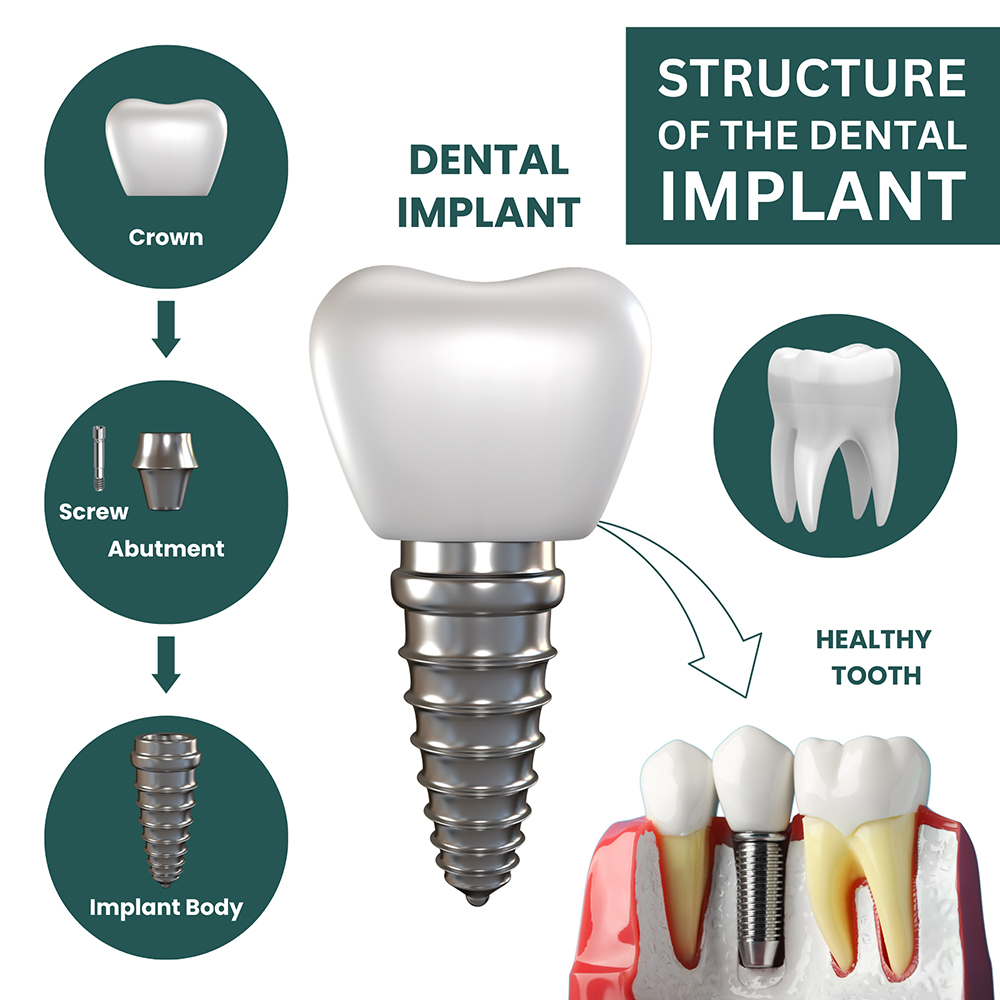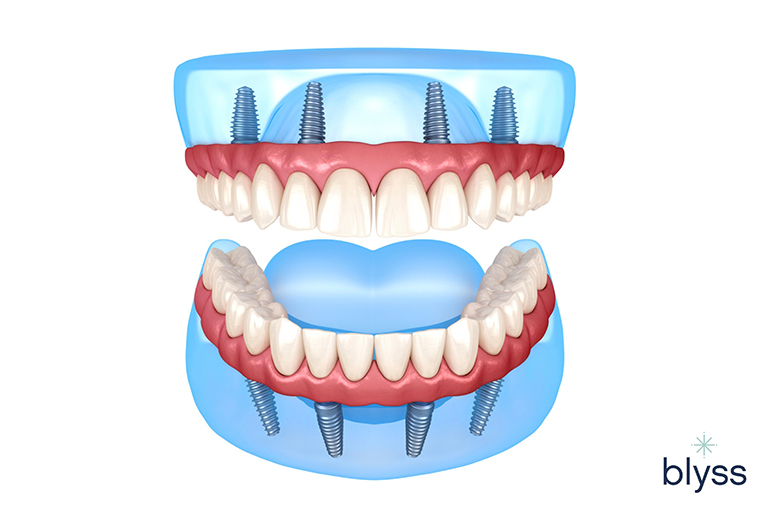The Buzz on Dental Sense
The Buzz on Dental Sense
Blog Article
The Ultimate Guide To Dental Sense
Table of ContentsDental Sense Can Be Fun For Everyone6 Simple Techniques For Dental SenseLittle Known Facts About Dental Sense.Get This Report on Dental Sense
are clinical tools surgically implanted right into the jaw to restore an individual's capacity to chew or their look. They offer assistance for artificial (phony) teeth, such as crowns, bridges, or dentures. When a tooth is shed because of injury or illness, an individual can experience issues such as quick bone loss, faulty speech, or adjustments to eating patterns that result in discomfort.Dental dental implant systems contain an oral implant body and oral implant abutment and might also include a joint fixation screw. Dental implants. The oral implant body is operatively put in the jawbone instead of the tooth's root. The dental implant joint is typically attached to the dental implant body by the abutment addiction screw and prolongs via gum tissues into the mouth to support the affixed man-made teeth
(https://giphy.com/channel/dentalsense1)Framework of The Oral Implant System picking dental implants, talk with your dental copyright concerning the potential benefits and dangers, and whether you are a candidate for the procedure. Points to think about: Your total wellness is an important consider determining whether you are an excellent candidate for oral implants, the length of time it will certainly take to recover, and for how long the dental implant might stay in place.
Smoking cigarettes might affect the recovery process and decrease the lasting success of the dental implant. The healing procedure for the implant body may take numerous months or longer, throughout which time you commonly have a temporary abutment in area of the tooth. the dental implant procedure: Meticulously follow the dental hygiene directions provided to you by your dental service provider.
How Dental Sense can Save You Time, Stress, and Money.
Implant failing can cause the need for one more operation to fix or change the dental implant system. Brings back the capability to eat Restores aesthetic appearance Helps keep the jawbone from reducing due to bone loss Preserves the wellness of the bordering bone and gum tissues Assists keep surrounding (close-by) teeth secure Enhances lifestyle Damage to bordering natural teeth throughout implant placement Injury to the surrounding tissues throughout surgical treatment, such as sinus perforation Injury throughout surgical procedure (for example, fracture of surrounding jawbone) Insufficient function, such as feeling like the teeth do not bite together normally A sensation that the tooth is loosened or twisting in position resulting from an abutment screw loosening up Implant body failure (looseness of the implant body) as a result of systemic infection, which might be a lot more likely in individuals with unrestrained diabetes mellitus as a result of neighborhood infection in bone and gums supporting the dental implant body because of postponed recovery, which may be much more most likely in patients who smoke Problem cleaning up the gums around the dental implant, resulting in poor oral hygiene Untreated gum disease Post-surgical tingling because of nerve impingement or damage Always notify healthcare carriers and imaging specialists that you have dental implants before any magnetic vibration imaging (MRI) or x-ray procedures.
FDA is not familiar with any adverse occasions reported for MRI or x-ray treatments with dental implants. Oral implants systems are commonly made of products that follow worldwide consensus requirements of the International Company for Standardization (ISO) or ASTM International. These criteria have details of what makes a safe material.

A dental implant is a framework that changes a missing tooth. With screw-like devices, the specialist inserts an implant into the jawbone, and it acts as an anchor for a man-made tooth, called a crown.
9 Easy Facts About Dental Sense Shown
Some people are not eligible for dental implant surgical procedure. It is for oral specialists to operate individuals with: severe illnessuncontrollable metabolic diseasebone or soft cells condition or infectionIf these problems are solved, a person can have the surgery. In, dental surgeons abstain from running on individuals with: If people with any one of the above go through oral implant surgical treatment, there is a higher danger of the dental implant failing.

Dental implant surgical procedure is a customized process. It's not the exact same for everybody. The adhering to offers a general overview of what you can anticipate your dental practitioner, dental surgeon, periodontist or prosthodontist to do: Put the dental implant operatively. Provide you time to heal. Attach the article and last crown, bridge or denture.
Next off, your doctor will meticulously put the dental implant into your jaw. If your dental implant is check here near the front of your mouth, your dental practitioner will certainly make a short-term tooth for you to put on until you recover.
The Main Principles Of Dental Sense
Your service provider can tell you what to anticipate in your situation. During the recovery stage, your jawbone ought to fuse to the oral implant. This process, called osseointegration, is essential for security and long-term success. This procedure can take anywhere from three to nine months. In some situations, it may take longer.
When your dental implant heals, your dental professional can connect the abutment (little port message) and your final repair (crown, bridge or denture). This usually takes about one hour to finish and might require a 2nd small surgical procedure. You shouldn't feel any pain during your oral implant procedure since your service provider will make use of medication to numb your gums.
Report this page